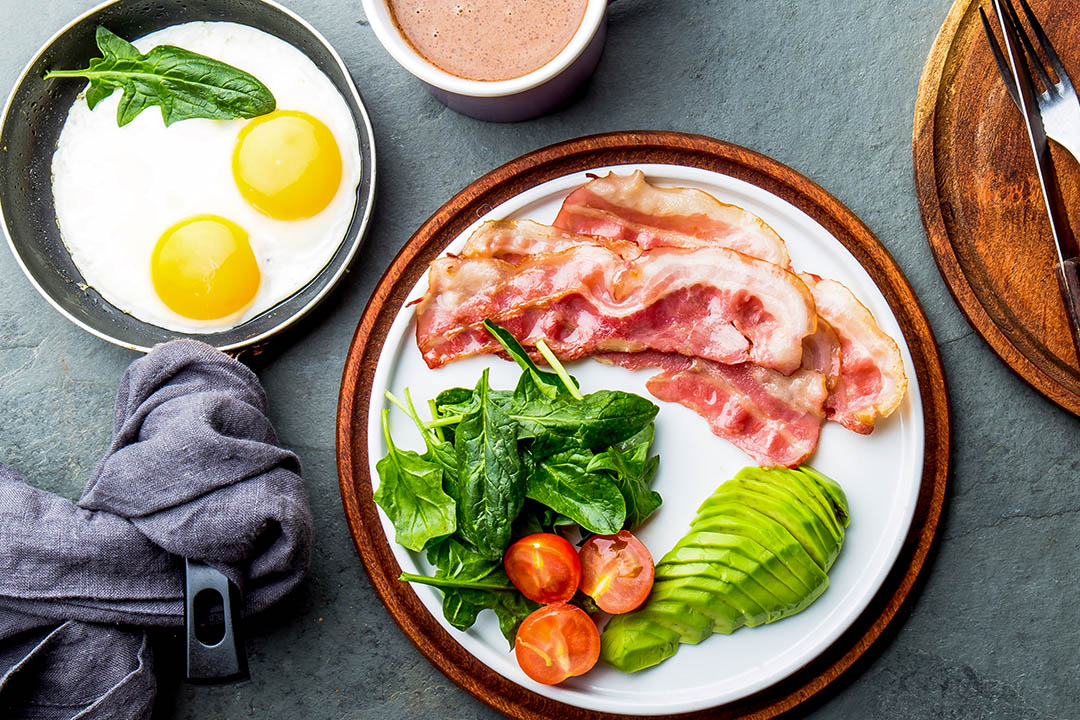16 Nov Why Low Carb High Fat Diets Are Inferior
by Ashleigh Feltham, Accredited Practising Dietitian and Accredited Nutritionist
Low-carbohydrate, high-fat diets are trending in the media. Proponents of this structure of eating claim many benefits including a superior way of achieving a goal of weight loss. However, new research suggests otherwise.
Low-carbohydrate, high-fat diets come in many different ratios of macronutrient distribution. The ketogenic diet has the lowest carbohydrate percentage, comprising around 70% fat, 25% protein and 5% carbohydrate.
Restricting carbohydrate intake makes it very difficult to achieve a balanced and varied diet, which includes meeting all the recommended serves of fruit and vegetables, and adequate serves of plant-based proteins like nuts, seeds, legumes, and beans. In addition, the recommended minimum of three daily servings of wholegrains is advised for health and wellbeing.
Wholegrains promote health in many ways, including supporting optimal gut health. Wholegrains contain prebiotic fibre and polyphenols, which feed health-promoting microbes in the gut. Keeping these microbes healthy and fed supports the health of many organs and body functions. Including adequate servings of whole grains in your diet may also reduce high blood pressure and lower the risk of developing type-2 diabetes, heart disease, and cancers such as colorectal cancer.
A healthy gut needs a variety of different plant foods. Including 30 different plant foods, a week is recommended to provide a variety of different polyphenols and prebiotic fibres. This is difficult if carbohydrates are restricted.
Research shows that following a diet with extremely high fat and low carbohydrates such as the keto diet in the long term is difficult. A lifestyle approach to eating habits is recommended for achieving and maintaining weight loss and health goals.
A study investigated the effects of two different diets. The first was a minimally-processed, animal-based, high-fat diet made of 10.3% fat and 75.2% carbohydrate. The second was a low-carbohydrate diet and a minimally-processed, plant-based, high-fat, low-carbohydrate diet made from 75.8% fat and 10% carbohydrate.
Twenty adults with an average age of 29.9 years of age and an average BMI of 27.8 (overweight category) were recruited. Each adult followed each type of diet for two weeks then swapped and followed the alternative diet. Calories were not restricted, and each adult could consume as much as they felt they needed.
It was found that a higher-carbohydrate, lower-fat diet resulted in a lower total calorie intake of approximately 689 calories or 2881 kilojoules. To give some perspective, consuming 2000 kilojoules less than we burn each day results in half a kilogram of weight loss each week.
One of the predicted reasons behind this significant difference in total calories eaten each day is due to the fibre content of minimally-processed, plant-based foods. Not all carbohydrates are equal. Jelly lollies cannot be placed in the same category for health and well-being as whole foods like whole grains, nuts, seeds, vegetables, and legumes. Minimally-processed, plant-based foods like these contain dietary fibre, which helps to keep you feeling fuller for longer and helps you to achieve and maintain a healthy weight.
An adult is recommended to include 25-38g of dietary fibre each day. More than half of children and more than 70% of adults do not meet these requirements. This could be the ‘secret’ most of the Australian population are missing. Fifty-seven percent of Australians are currently classified as either overweight or obese.

Take home message:
If you are considering following a low-carbohydrate, high-fat diet with the belief that carbohydrates will ruin your chances of weight loss success, you may want to reconsider. The benefits of following a higher-carbohydrate, minimally-processed, plant-based style of eating may not only help you achieve more weight loss, but add in additional health benefits at the same time to promote an optimal quality of life.
References:
- Hall KD, Guo J, Courville AB, Boring J, Brychta R, Chen KY, Darcey V, Forde CG, Gharib AM, Gallagher I, Howard R, Joseph PV, Milley L, Ouwerkerk R, Raisinger K, Rozga I, Schick A, Stagliano M, Torres S, Walter M, Walter P, Yang S, Chung ST. Effect of a plant-based, low-fat diet versus an animal-based, ketogenic diet on ad libitum energy intake. Nat Med. 2021 Feb;27(2):344-353. doi: 10.1038/s41591-020-01209-1. Epub 2021 Jan 21. PMID: 33479499.
- Paoli, A., Rubini, A., Volek, J. S., & Grimaldi, K. A. (2013). Beyond weight loss: a review of the therapeutic uses of very-low-carbohydrate (ketogenic) diets. European Journal of Clinical Nutrition, 67(8), 789–796. http://doorg/10.1038/ejcn.2013.116
- Overweight and obesity. Australian Institute of Health and Welfare.
- How Much Whole Grain is Enough? Oldways Whole Grains Council.




